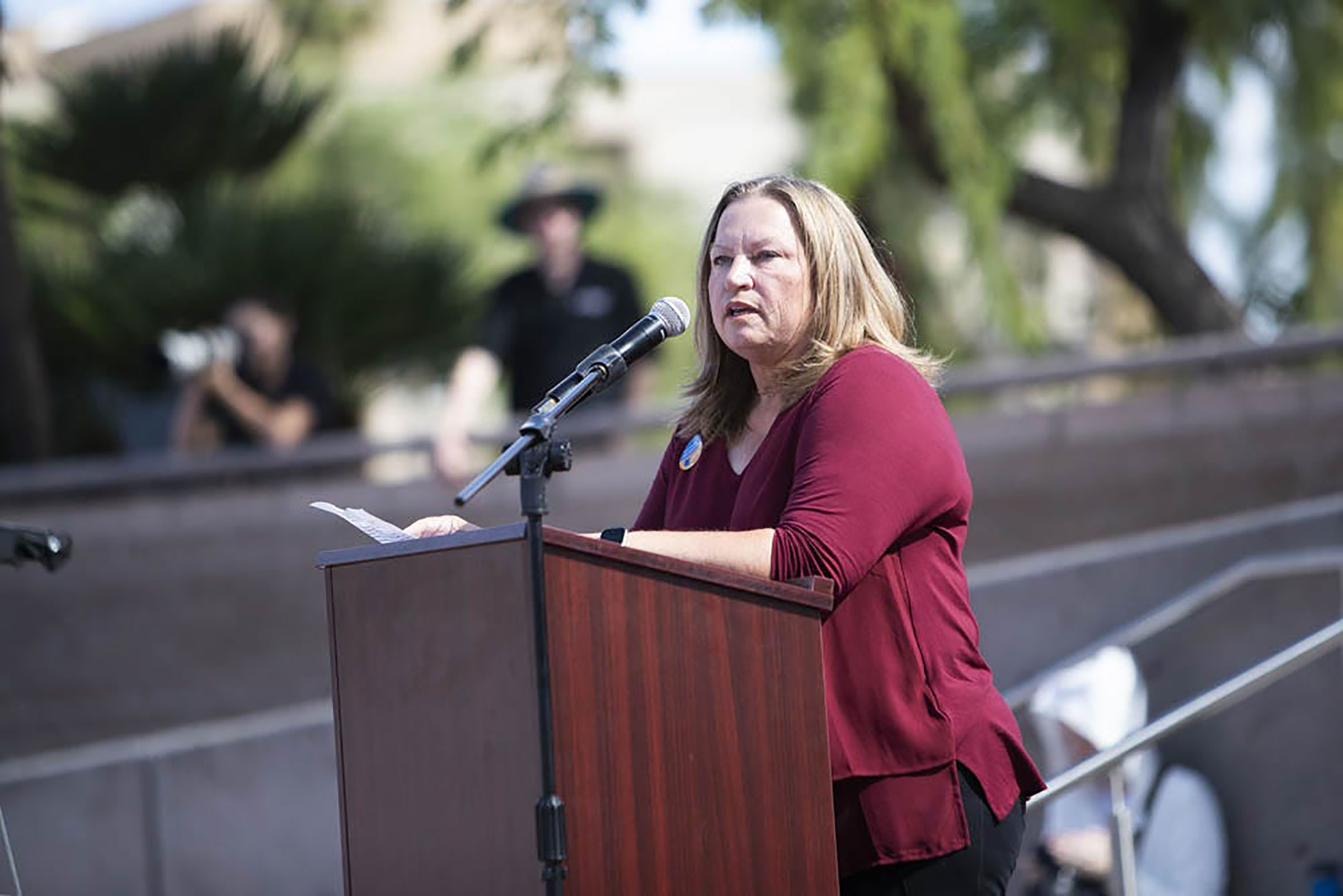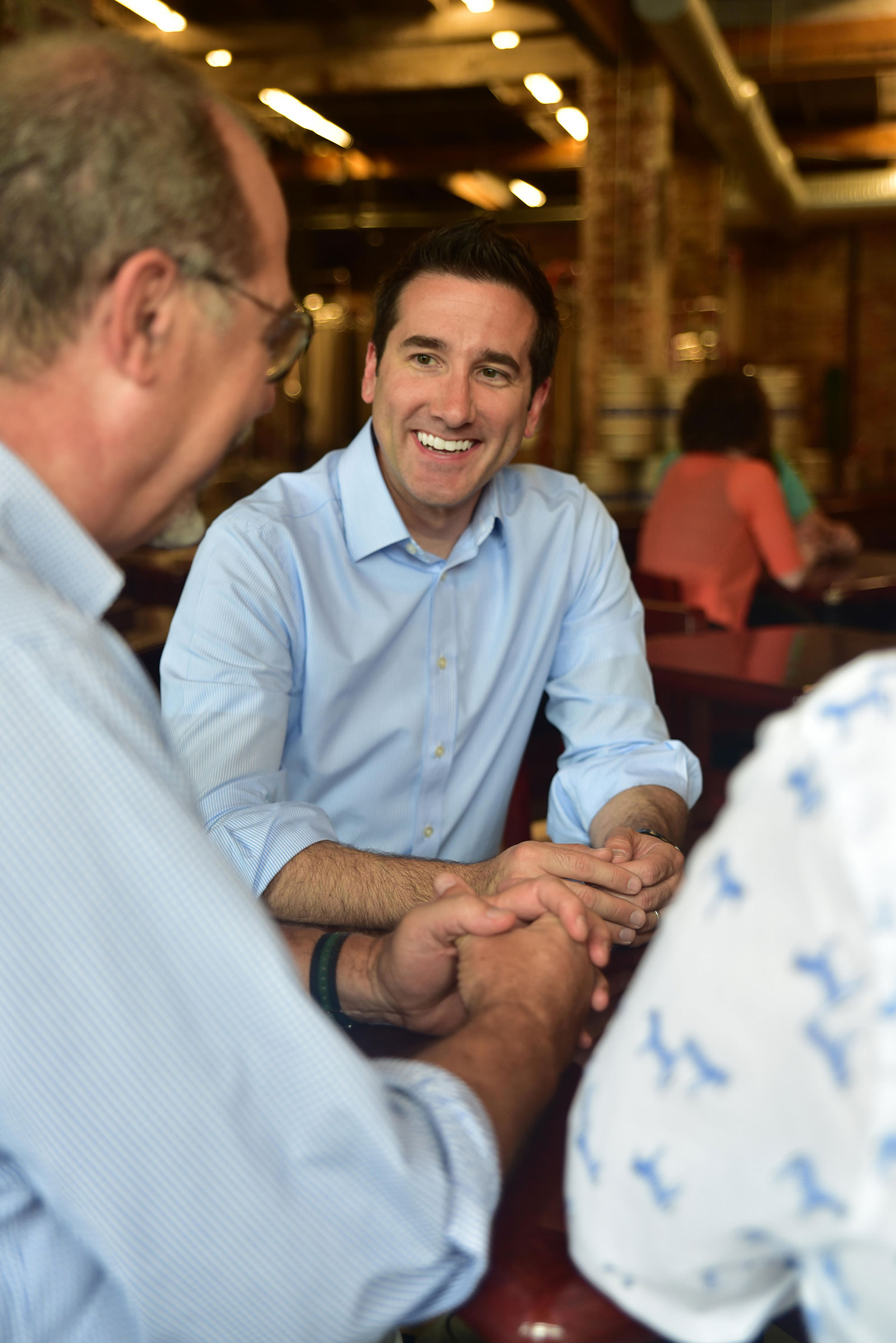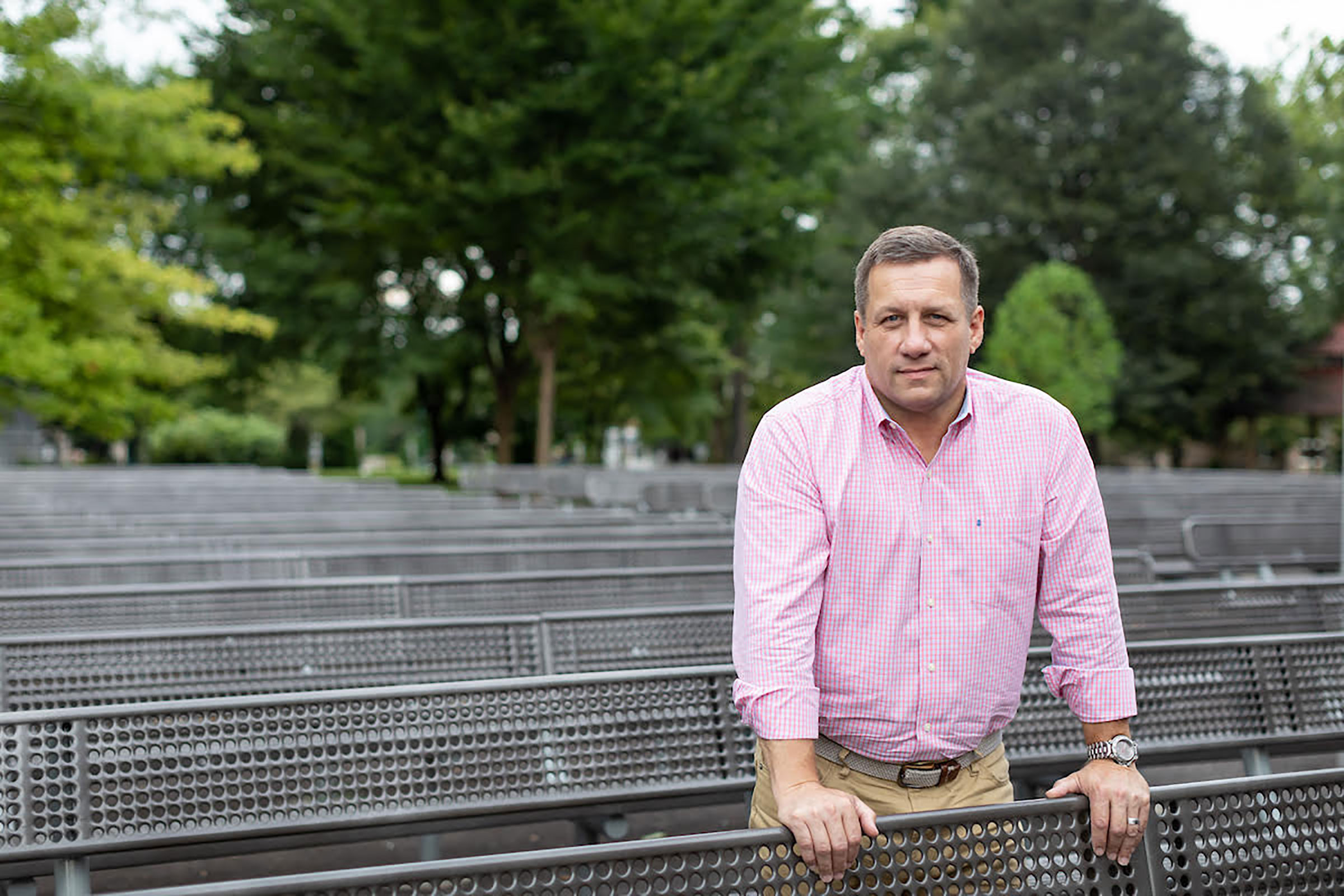
The video opens with a woman sitting calmly next to her husband. “Like a lot of people, the issue of abortion is personal to us. We lost our first pregnancy, and I had to have a D&C,” she says, referencing to a dilation and curettage, a procedure used for miscarriages and abortions.
The woman is Jennifer, wife of North Carolina state Rep. Terence Everitt, and the video is an ad for Everitt’s reelection campaign to his seat in the North Carolina House of Representatives. While the ad goes on to say that Everitt’s opponent would “vote to ban abortion, criminalize doctors, and put women’s lives at risk,” the personal story is not what most voters are used to hearing from politicians—until this year.
When the Supreme Court overturned the constitutional right to abortion with its decision in Dobbs v. Jackson Women’s Health Organization in June, it upended 50 years of precedent and instantly made the issue of abortion relevant to nearly every race in this year’s midterm elections.

Though politicians at all levels have been talking about abortion in new ways, nowhere is that more true than in state legislative races. The end of Roe v. Wade means that abortion policy is now determined on a state-by-state basis, and that has given state legislatures more control over the legality of abortion for their constituents.
“I’ve spoken more about this issue than I ever thought I would in my lifetime,” Everitt says. His wife, he adds, made the decision to share her story after seeing the stakes of the election. Abortion is currently legal in North Carolina until 20 weeks of pregnancy, and while the state’s Democratic governor has vetoed abortion restrictions in the past, Republicans are vying for supermajorities in the General Assembly in November, which would allow them to override a veto in the future. The Everitts worry that if Republicans enact more abortion restrictions, they could make procedures like Jennifer’s harder to access and subject people experiencing pregnancy complications—and their doctors—to legal scrutiny.
“It’s meaningful when celebrities or public figures are talking about it, because that can change how society thinks about these issues. But it’s also really important for policymakers to reflect that they have experienced and understand these issues as well,” says Rebecca Kreitzer, an associate professor of public policy at University of North Carolina Chapel Hill who studies abortion.
In Michigan, where the state is voting on a ballot measure that would put the right to abortion in the state constitution this fall, state Sen. Rosemary Bayer has been talking to constituents about an abortion she had after learning she had an ectopic pregnancy—a condition in which an egg implants outside the uterus, making the pregnancy nonviable and potentially life-threatening. Bayer first shared her story with colleagues over a year ago when Democratic lawmakers tried to repeal Michigan’s 1931 abortion ban and says she was nervous to talk about it publicly. “The shame and the stigma associated with it is so severe, even for medical ones like mine,” she says. But now that Roe v. Wade has been overturned, she’s telling the story more frequently to help constituents understand the kinds of pregnancy care that can be affected by abortion bans. “In the end, you take these jobs to help the people,” she says.
Read More: Michigan Is Fighting One of the Most Significant Abortion Battles in the Country
Another Michigan legislator, state Rep. Christine Morse, also began speaking more publicly about her abortion this year. When Morse was diagnosed with breast cancer in 2011, she went in for an MRI and found out she was pregnant. Her doctors said they couldn’t treat the aggressive cancer while she was pregnant, and without the medication, her life expectancy was three years. But they gave her a choice: she could either continue the pregnancy and wait to begin her treatment, or get an abortion so she could start treatment right away. With three children already at home, Morse said she wanted the “best shot at survival.” She got an abortion and started chemo a few weeks later. Morse says she knows that under many of the abortion laws taking effect since Dobbs, situations like hers could become more complicated.
“People are very sympathetic about my story. The hard part is, they will often sort of discount its importance in the abortion discussion because they take it as a given that my life was in danger, and so that’s acceptable,” Morse says. “Meanwhile, under our 1931 law here in Michigan, the only exception is for the mother’s life, but there is no legal definition of that, nor has it been considered in the courts. And I think it’s clear from my story that it wasn’t treated as an emergency.”
Other candidates have told their stories for the first time this year, moved by similar motivations to show the wide variety of medical care affected by laws restricting abortion and push back on anti-abortion arguments that the new laws are not as restrictive as Democrats are making them out to be.
New Hampshire state Rep. Allison Nutting-Wong recently wrote an op-ed in the New Hampshire Union-Leader describing her own recent miscarriage after seeing her opponent, conservative activist Di Lothrop, downplay the effects of abortion restrictions. In an op-ed in the same paper, Lothrop compared making abortion more difficult to access to someone needing to drive “20 miles, 50 miles, or 100 miles” to access specialized treatment because their local hospital couldn’t help them. “This doesn’t mean you have lost your freedom to have it done,” she wrote. “Your choice was narrowed, but the surgery remains available to you.”
“I was really upset,” Nutting-Wong says. She did not want to share her own story, but says she felt compelled to make the point that driving hundreds of miles to access necessary medical care is not merely “inconvenient” as her opponent was arguing. “My whole philosophy of being a state rep. is that I’m not unique at all. I just am in a unique place to do something about it,” Nutting-Wong says.
Read More: ‘Am I a Felon?’ The Fall of Roe v. Wade Has Permanently Changed the Doctor-Patient Relationship
Some candidates who had abortions not for medical reasons are also speaking out. New Hampshire state Rep. Amanda Elizabeth Toll had an unplanned pregnancy as a teenager and chose to get an abortion. “It allowed me to have, when I was ready, children on my own terms,” she says. Toll was talking about her abortion long before this year, but she says now it is more important than ever for lawmakers to show constituents they understand the experience.
In the past, politicians who spoke about personal abortion stories were largely people like Toll—progressive women in liberal areas, says Kreitzer at UNC Chapel Hill. Another big difference this year is that Democratic men and candidates in competitive districts are speaking out too.
Paul Friel, a candidate for Pennsylvania’s 26th House district, is one of those people. Republicans currently control the state legislature in Pennsylvania, and Democrats are hoping to make gains to prevent them from passing abortion restrictions in the future. Friel spoke at a rally in July and revealed that when his wife Mary was pregnant with their son 23 years ago, doctors discovered a tumor on her ovary. They couldn’t operate initially without killing the fetus, so Mary decided to continue the pregnancy as long as she could. At about 15 weeks, doctors were able to remove the tumor—then about eight and a half pounds—and let her continue the pregnancy and give birth to the Friels’ son.

“This was her decision, and thank God we had the ability to make that decision,” Friel says. He worries that if Pennsylvania restricts abortion, operations that could potentially end a pregnancy, like the one his wife needed, might not be legal. “Some women are going to die with these policies unnecessarily because legitimate healthcare options are not available to them and are being taken away by politicians that have this sort of black and white, all or nothing version of the world,” Friel says.
In Arizona, where Cindy Hans is running for state senate, abortion is now banned after 15 weeks of pregnancy. A state court has blocked a pre-Roe ban, and Democrats are hoping to take over Republicans’ thin majorities in the state legislature. Throughout her campaign, Hans has talked about her work as an abortion clinic escort shielding patients from protesters. But she decided at her local Women’s March in October to publicly share for the first time that she got an abortion when she was 17—three years before Roe v. Wade was decided.
Abortion was illegal in her home state of Indiana at the time, but she found a doctor in her area who said he could help. However, when he did the exam, Hans realized the doctor was drunk. She quickly left, and eventually found an appointment in New York, where abortion had recently become legal. “I’m fortunate. I had access to funds to get me to a safe place, to get me to a medical facility with licensed medical practitioners,” Hans says. “What if I hadn’t had that?”
Now she is concerned about people in her state who might not have access to the resources she did. “There are a zillion reasons why people get an abortion. None of them need the opinion of a politician,” she says. In sharing her personal story, she hopes people will connect the issue to their vote. “I want people to know that this is what we’re going back to, but we don’t have to,” she says. “We have a choice in the ballot box.”
More Must-Reads from TIME
- Why Trump’s Message Worked on Latino Men
- What Trump’s Win Could Mean for Housing
- The 100 Must-Read Books of 2024
- Sleep Doctors Share the 1 Tip That’s Changed Their Lives
- Column: Let’s Bring Back Romance
- What It’s Like to Have Long COVID As a Kid
- FX’s Say Nothing Is the Must-Watch Political Thriller of 2024
- Merle Bombardieri Is Helping People Make the Baby Decision
Write to Abigail Abrams at abigail.abrams@time.com